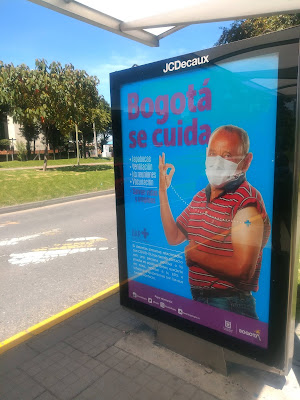@wwaycorrigan
[Listen to an audio version of this blog entry here.]
OK, I must make an important declaration first. I'm not a pet lover. This isn't to say I'm anti-pets. I've no problem with them as long as I've little-to-no involvement when it comes to their care and attention.
 |
| Scene of the crime: Not the culpable dog in the picture, though! |
Dirty, rotten mongrel
So it does bug me quite a bit when pet owners appear to force their love for their balls of fur on me. In the same way that I dislike public displays of affection between couples, I don't want to see apparently grown-up folk being all lovey-dovey with their "best friend" and practically insisting that I feel the same way towards the "adorable" mongrel.Yes, I'm using terms associated with dogs because it's mostly those canine creatures that I'm referring to here.
Now I must say that, traditionally, I've never been much of a cat lover either. In fact, in the past, I'd always say I preferred dogs to cats. However, these days I appreciate the more independent and, largely, not-bothered, selfish nature of cats. Dogs, on the whole, tend to be so much more demanding, not to mention noisier.
Nonetheless, even if a particular dog owner thinks his/her mutt is the greatest on the planet — they all think this way, don't they? — as long as he/she is a responsible, respectful owner then I'm OK with that.
It's with those who are anything but responsible that I have, um, quite the bone to pick.
Similar to how they probably raise any children they might have, these self-proclaimed animal lovers allow their fleabag to roam the land unrestrained. Should said fleabag inflict damage on an innocent passerby, they either deny that it was their bundle of joy who did it or blame the victim for provoking the incident.
'Impunity reigns supreme here. When it comes to looking for support from the Colombian state, indifference is the default reaction.'It was the latter stance that was taken with me after a dog bit my left calf muscle, drawing blood in the process. 'Why are you walking around here?' 'Eh, it's a public road, I have a right to be here as much as anyone. Why can't you control your dog or put a muzzle on it?'
'Only our dogs run free'
Cue the typical Colombian response when confronted by a foreigner. 'It's none of your business, it's how we do things here. If you don't like it, don't come around these parts.'In mitigation, the man who responded thus had, it seemed, the same number of cells in his brain as the average person has on the nail of their little finger.
The children who were with the dog when it bit me were more understanding. Perhaps there is hope for the future, although this thoughtful side to them will most likely disappear. The dominant culture of taking no responsibility for one's actions is sure to shine through.
I would, of course, have been within my rights to report the incident to authorities, especially with the general lack of remorse shown. Experience has taught me, though, that this is an utter waste of time.
Impunity reigns supreme here. In the main, when it comes to looking for support from the Colombian state, indifference is the default reaction. Trust in officialdom to act as an impartial arbiter is practically non-existent.
In such an environment, little wonder a community spirit is generally lacking. It's self-interest first and foremost, sometimes followed by a strong loyalty to family. (For an academic discussion on Colombia's 'weak state, weak society' listen to this interview with the renowned British economist and political scientist, James Robinson.)
The net result is that nobody tends to feel safe. It's every man, woman and child for him/herself. Only the dogs seem to truly run free. And Álvaro Uribe Vélez, to a lesser extent albeit.
_______________________________________________________________
Listen to Wrong Way's Colombia Cast podcast here.
Facebook: Wrong Way Corrigan — The Blog & IQuiz "The Bogotá Pub Quiz".


